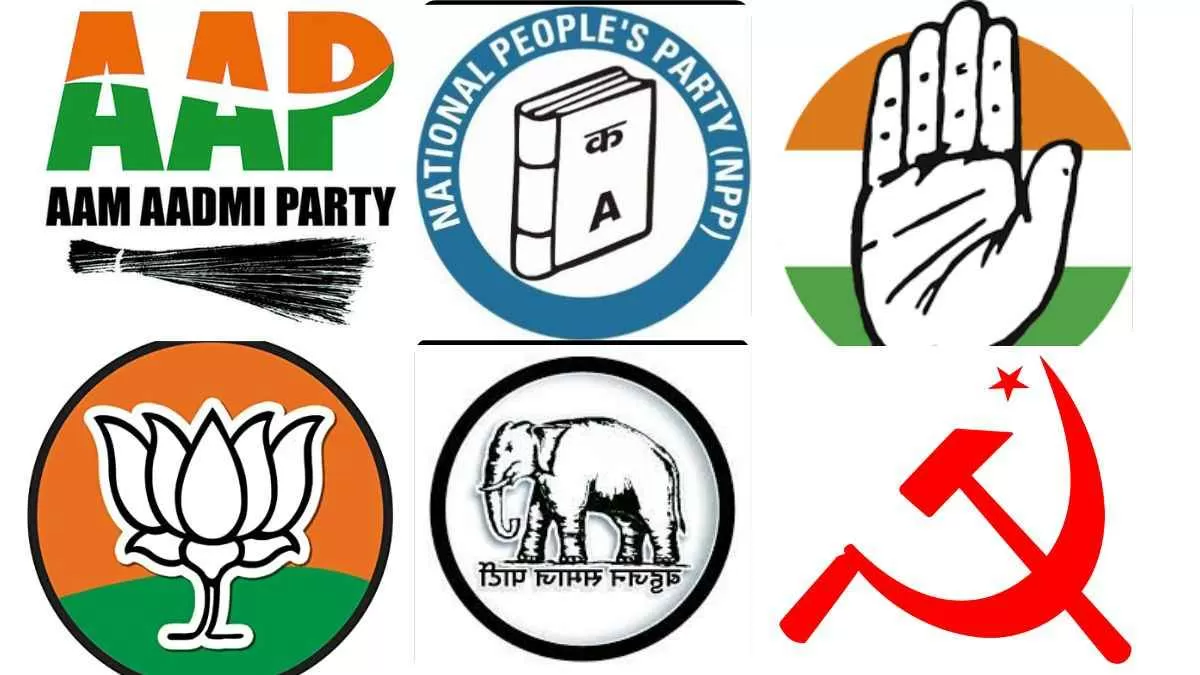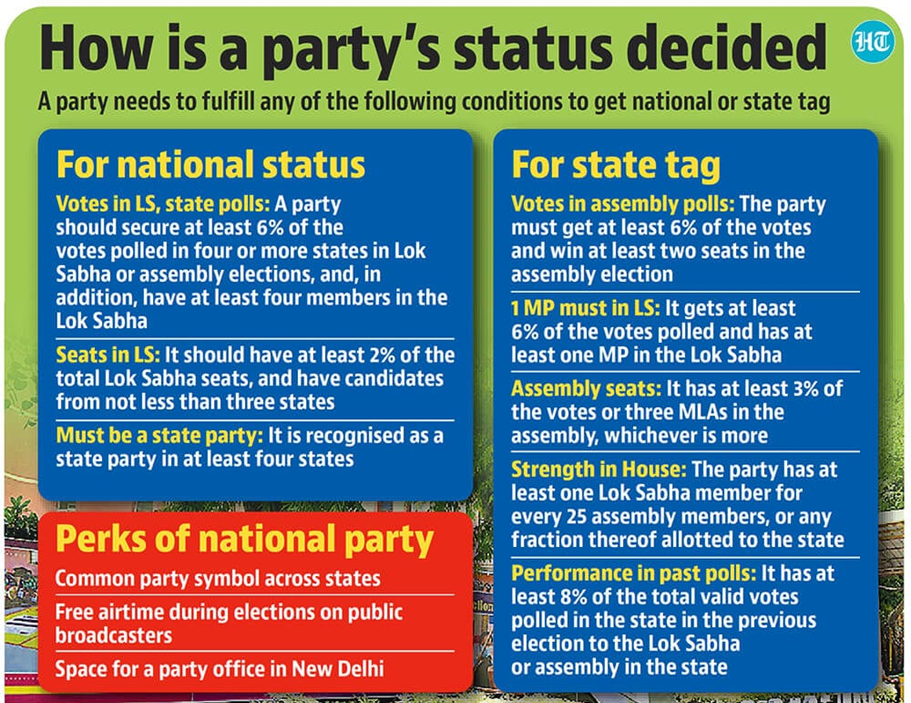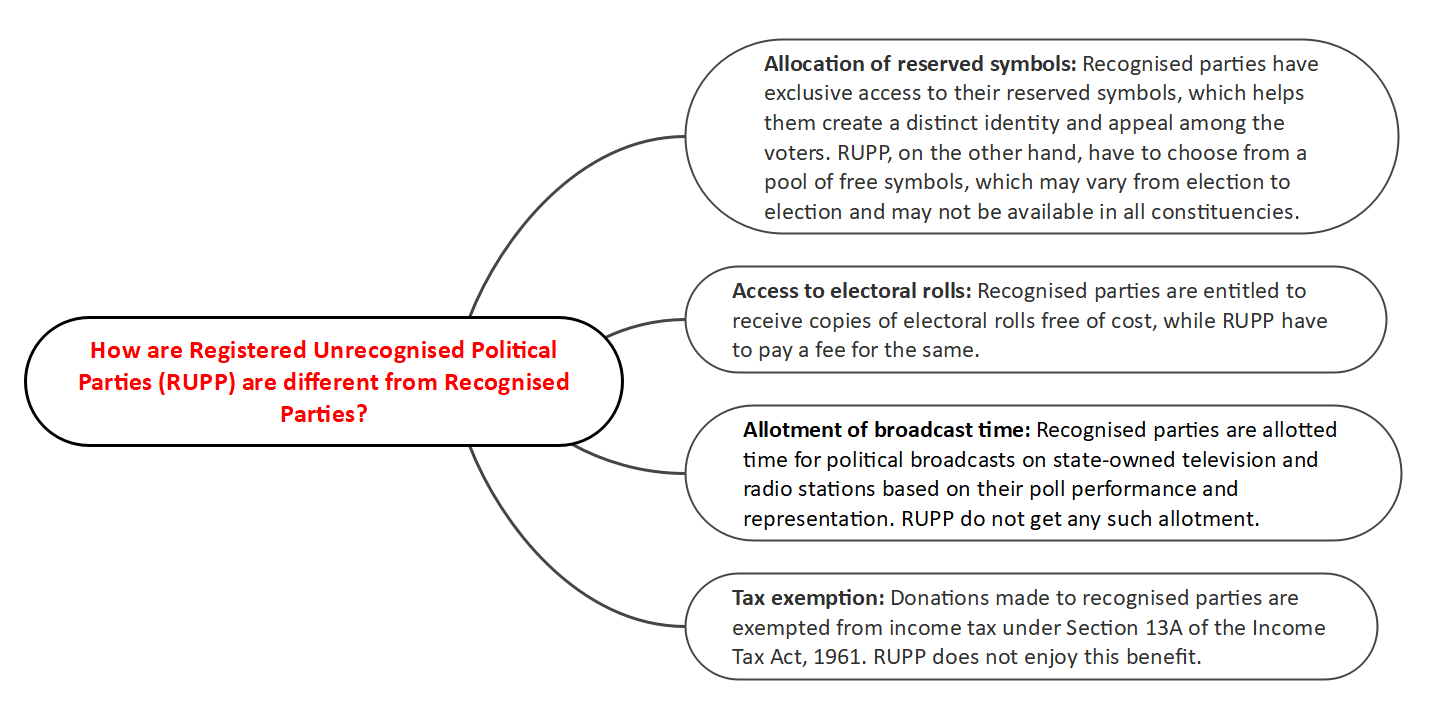Free Courses Sale ends Soon, Get It Now


Free Courses Sale ends Soon, Get It Now



Copyright infringement not intended
Picture Courtesy: https://www.jagranjosh.com/general-knowledge/list-of-all-the-political-parties-in-india-1476786411-1
Context: The Viduthalai Chiruthaigal Katchi (VCK) is denied a common symbol by the Election Commission of India (ECI) in Tamil Nadu due to the criteria outlined in the Election Symbols (Reservation and Allotment) Order 1968.
Details
Criteria for Party Recognition

Allotment of Symbols to Unrecognised Parties

Rule 10B of the Symbols Order
|
Specific Issue with VCK ●The VCK, despite having elected representatives in the Lok Sabha and State Assembly, was denied a common symbol likely because it did not meet the requirement of securing at least 1% of the votes polled in the 2021 State Legislative Assembly elections. ● Even though the VCK had elected representatives, the specific criterion of vote share was not met, leading to the denial of a common symbol. |
Potential Amendments and Way Forward
Proposed amendments could include:
Conclusion
Must Read Articles:
REGISTERED UNRECOGNISED POLITICAL PARTIES
Source:
|
PRACTICE QUESTION Q. The influence of money and corporate funding in Indian elections has raised concerns about a weakening of democratic ideals. How can India address the issue of political financing while ensuring a level playing field for all parties? Discuss potential reforms and their effectiveness. |
© 2024 iasgyan. All right reserved